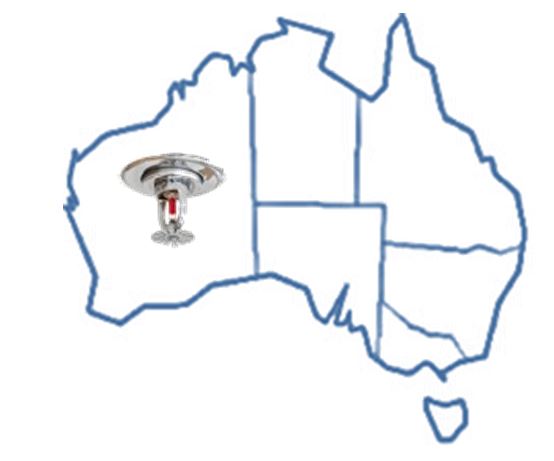I hope you find my writing and business tips and observations useful. My business and blog are dedicated to helping businesses communicate clearly and reach their potential.
Read, subscribe to my newsletter, enjoy!Tash
Without context, messages get lost
In an article about Australian Standards on what I thought a national-focus site, the following section stood out…
The retrofitting of automatic sprinkler systems became a mandatory requirement for existing aged care facilities in January 2013. Similar requirements also exist in Victoria and Queensland.
So two states have similar laws to the national laws? Why are the national laws not, well, national?
Or is the author just assuming everyone knows he is writing about a particular state because it is so important and somehow obvious?
Or was something edited out that made it clearer in the draft?
Fire safety is important – but so is clarity so people understand your message.
Clarify your context…
When proof reading and editing, always make sure you read your writing from start to finish to check the correct context is in place.
A better way to write the above sentence (and I’m guessing which state is the assumed one!) would be…
In January 2013, the retrofitting of automatic sprinkler systems became a mandatory requirement for existing aged care facilities in Tasmania, Victoria and Queensland.
I think it would also be nice to add another sentence along the lines of “The other states are reviewing their laws” or “Currently the other states have this as a voluntary measure”. I prefer to get the whole picture, but that could just be me!
If you want to avoid similar errors, let me know – I offer proof-reading and editing services as well as writing 🙂
Getting responses
If you take the time to write some content, I assume it is to get a response. So isn’t it worth taking a bit longer and making a response more likely?
This week I have received two messages that may have generated a nice response from me except for what I see laziness on the part of the writer.
First was an unsolicited email from someone wanting some proofreading work from me. He used the contact form on my website but addressed it to “To whom it may concern”.
If you want a job, you need to impress your perspective employer – show some initiative and attention to detail, and tailor your approach to the employer. It is not hard to find my name on my site but he didn’t even bother. He also didn’t mention my business in any way, just what he wanted, and used a Gmail account instead of an email from his domain.
Second was a comment in my blog {names changed to protect the guilty or maybe just me!}:
I am Fred Nerk from XYZ Pty Ltd and I would like the contact details of your marketing manager to tell him about our forum next November Regards.
I know this was spam and he obviously hadn’t even read the post he was commenting on. But the same lesson applies – take the time to find someone’s name and understand their business before contacting them.
Even if you can’t be bothered doing your research, assuming all marketing managers are male is not a good option either.
I’m not employing someone (or buying someone’s product or service) who can’t be bothered finding my name on my site.
Would you?
A manual by any other name…
It’s an officious sounding word for many people, and certainly a daunting prospect if you have to write or update the manual for your business. So much so, that people often avoid having a procedures or operations manual or just call it something less intimidating.
Which raises the first question – what is a manual?
Really it is just a collection of ideas and instructions to help operate something efficiently. It may be boring to read the manual that came with your new iPod, phone or TV but it is very handy when you can’t figure out how to set it up or use the advanced features.
Manuals range from a few pages long to hundreds and even thousands of pages long, depending on the purpose of the manual. Obviously the manual to run a multi-million dollar business will be longer than the manual for your home printer, but the concept is the same.
Here are a few tips to make the concept of a manual less intimidating in your business:
- call it something other than a manual if the name has negative associations for you – options include guidelines, procedures, rules, ‘helpful information’, policies and the ‘how to book’
- make sure to write it (or get it written) in simple terms so it’s easy to understand
- present it in an accessible way – a heavy folder stored on a high shelf will be ignored but a shared computer file on your intranet is much easier to use
- divide the manual into usable chunks – much better to have a long index than instructions that go for pages and cover many tasks
If you are starting a new manual from scratch, you have the advantage of making it friendly from the start, and preparing procedures and style guides doesn’t have to be frightening either!
Thinking about manuals you’ve had to use in the past, what were some of the big issues with them?
Enough naming but not too much
Have you heard about using keywords to help search engines find you online? And considered that your business and/or product name is a critical keyword to get noticed?
I have often read about including keywords and business names in articles, newsletter and blog posts, and sometimes it even tells you how many times to include such words*.
Instead of some ‘magic’ number of times to use a word, I suggest writing it so the article is interesting and worth reading. Overuse of a keyword becomes obvious as a ploy and the writing then looses some of its credibility as a source of information.
In particular, how often can you mention a company name before someone stops reading it? Continue reading
Choosing a name
When starting (or restructuring) a business, one of the hardest decisions is often the name.
You need to consider all possible meanings of the name, whether it is too similar to another business (especially a competitor), whether a domain name is available, does it suit the branding style your business needs, is it easy to remember, and so on.
I have a client going through this process now and it is difficult. Many good names we think of are already registered, although for very different businesses to hers.
A couple of years ago I wrote an article about naming your business – I must remember to send a copy to my client!
I enjoy the challenge of choosing names – it lets me be creative and think in a different way, which is fun!
Some business names I like are:
Word Constructions (well, you’d want me to like my own business name wouldn’t you!)
Precious Water (I agree with sentiment before even checking out their tanks!)
Web Graphics By Email (longer than I usually like, but it sums up the business beautifully)
Real Mums (sounds genuine, somewhere mums can truly be themselves)
The Marketing Coach (much more approachable than something like “The Marketing Experts”)
Love Santa (personalised letters signed Love Santa – says it all really!)
BYO Kids (because it’s hard to leave the kids behind all the time!)
I’m sure there are others, but I just can’t think of them right now. What are some of your favourite business names?


Recent Comments